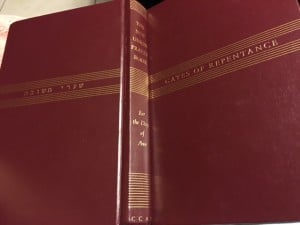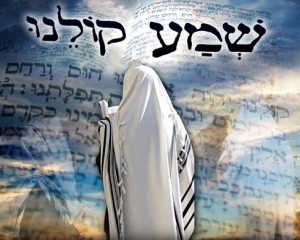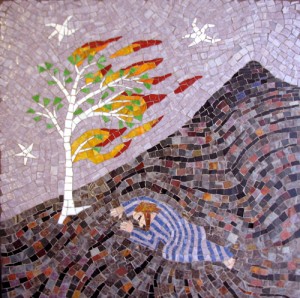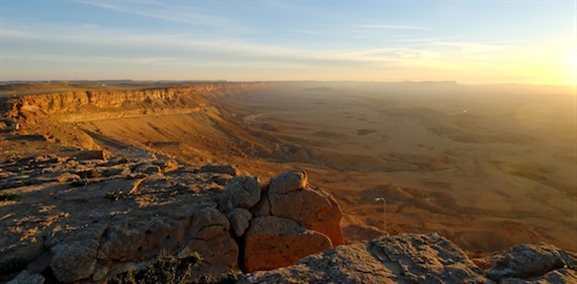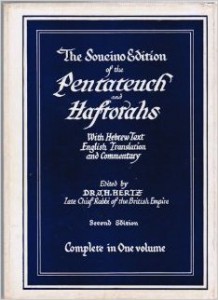
Image from amazon.com
[First posted in 2013. Since this chapter is a crucial one, we will quote in toto the commentary of our MUST READ/MUST OWN Pentateuch & Haftarahs, not only the Introduction but the comment for specific verses. Commentary is enclosed in [brackets]. Highlighting and reformatting have been added.—Admin1.]
———————-
CHAPTER XIX. A MANUAL OF MORAL INSTRUCTION
- This remarkable chapter occupies the central position in Leviticus, and therefore in the Pentateuch. The Rabbis rightly regarded it as the kernel of the Law and declared that ‘the essentials of the Torah are summarized therein’ (Sifra).
- This chapter has in fact been looked upon as a counterpart of the Decalogue itself, the Ten Commandments being in essence repeated in its verses (I and II in v.4; II in v. 12; IV and V in V. 3; VI in V. 16; VII in v.29; VIII and IX in v.11-16; and X in v.18).
- The precepts contained in the chapter may, at first sight, appear a medley of the spiritual and ceremonial—fundamental maxims and principles of justice and morality alongside of ritual laws and observances. The Torah, however, regards human life as an indivisible whole, and declines to exclude any phase thereof from its purview. . . .
2. HOLINESS AND THE IMITATION OF GOD
As the command, ‘ye shall be holy, for I the LORD your God am holy,’ dominates not only this chapter but the whole ethical legislation in Leviticus, it is necessary to have a clear understanding of the word holy in its ethical, as distinct from its ritual, signification.
- First, it denotes the sublime exaltedness and overpowering majesty of God; in the presence of that Divine holiness, mortal man feels ‘but dust and ashes’ and is crushed by the sense of his unworthiness (Isa. VI, 5).
- Secondly, holy expresses everything that makes men imperfect, and His recoil from everything impure and unrighteous; in the words of the Prophet, ‘Thou art of eyes too pure to behold evil, and canst not look on mischief’ (Hab.I.13).
- Thirdly, holy stands for the fullness of God’s ethical qualities—for more than goodness more than purity, more than righteousness; it embraces all these in their ideal completeness. ‘The Holy One, blessed be He!’ is the most common name for God in Rabbinical literature, as well as on the lips of the Jewish masses. In its ritual usage, the word ‘holy’ is applied to persons and things connected with the Sanctuary, or consecrated for religious purposes.
Leviticus/Wayyiqrah 19
1 YHVH spoke to Moshe, saying:
2 Speak to the entire community of the Children of Israel, and say to them:
Holy are you to be,
for holy am I, YHVH your God!The Torah and its message of holiness is the heritage of the assembly of Israel. There was not to be a small class of ‘specialists’ in religion who dwelt apart, while the people were sunk in ignorance and superstition. Israel was to form a spiritual democracy; Deut. XXXIV.
Holy are you to be, [set-apart in righteousness];
for holy am I, YHVH your God!
Man is not only to worship God, but to imitate Him. By his deeds he must reveal the Divine that is implanted in him; and make manifest, by the purity and righteousness of his actions, that he is of God. Mortal man cannot imitate God’s infinite majesty or His eternity; but he can strive towards a purity that is Divine, by keeping aloof from everything loathsome and defiling (XI,44); and especially can he imitate God’s merciful qualities. This ‘imitation of God’ is held forth by the Rabbis as the highest human ideal.
‘Be like God; as He is merciful and gracious, so be thou merciful and gracious. Scripture commands, Walk ye after the LORD your God. But the LORD is a consuming fire; how can men walk after Him? But the meaning is, by being as He is—merciful, loving, long suffering. Mark how, on the first page of the Torah, God clothed the naked—Adam; and on the last, He buried the dead–Moses. He heals the sick fees the captives, does good even to His enemies, and is merciful both to the living and the dead’ (Talmud).
These merciful qualities, therefore, are real links between God and man; and man is never nearer the Divine than in his compassionate moments. Dr. Schecter has pointed out that the Imitation of God is confined by the Rabbis to His attributes of mercy and graciousness. ‘The whole Rabbinic literature might be searched in vain for a single instance of the sterner Biblical attributes of God being set up as a model for a man to copy’ (Abrahams).
Holiness is thus not so much an abstract or a mystic idea, as a regulative principle in the everyday lives of men and women. The words, ‘ye shall be holy,’ are the keynote of the whole chapter, and must be read in connection with its various precepts;
- reverence for parents,
- consideration for the needy,
- prompt wages for reasonable hours,
- honourable dealing, no talebearing or malice,
- love of one’s neighbour and cordiality to the alien,
- equal justice to the rich and poor,
- just measures and balances—
- together with abhorrence of everything unclean, irrational, or heathen.
Holiness is thus attained not by flight from the world, nor by monk-like renunciation of human relationships of family or station, but by the spirit in which we fulfill the obligations of life in its simplest and commonest details: in this way—by doing justly, loving mercy, and walking humbly with our God—is everyday life transfigured.
3-4. FUNDAMENTAL MORAL LAWS
3 Each-man-his mother and his father you are to hold-in-awe,
and my Sabbaths you are to keep: I am YHVH your God!The first precept stressed is reverence for parents. Neglect of filial duty vitiates a man’s whole attitude to life, and places the ideal of holiness out of his reach. ‘If we have failed in our duty towards our parents, we are not likely to succeed in our relations towards others’ (Foerster).
fear . . . . his mother, lit ‘stand in awe of . . . his mother’. In the Decalogue the father is mentioned before the mother, and the word used is honour instead of fear. The Rabbis suggest the following reason for the difference: the father is the parent who disciplines the child; the mother is richer in manifestations of affection and kindliness. The child would consequently have ‘love’ for the mother, but ‘stand in awe’ before the father. Therefore, the Torah insists on the child showing love and reverence to both. The term ‘fear’ in this verse is that used in reference to God.
‘Dear to God is the honouring of father and mother, for Scripture employs the same expressions about honouring and revering Himself’ (Talmud).
For the child, his father and mother are more than ordinary mortals; and, in fact, the Fifth Commandment is in the Decalogue the connecting link between our duties towards God and our fellowmen. Many are the beautiful sayings in Rabbinical literature in regard to this Commandment, but none more beautiful than the story of Dama.
Dama, a heathen dealer in jewels in Ascalon, had a stone such as was required to replace one of the precious stones in the High Priest’s breastplate. A deputation from Jerusalem came to him to negotiate for its purchase; and he agreed to sell it for one hundred dinars, but when he went into an inner room to fetch the stone, he found that his father was asleep in that room. Dama came back, and said he could not after all sell the stone. The deputation offered 200 dinars, 300, a thousand dinars—but in vain. Soon after, his father having waked, Dama ran after the Temple emissaries with the jewel; but he refused to take more than the original 100 dinars of the first offer. ‘I will not make any profit from the honour which I paid to my father,’ he said. Filial reverence, the Rabbis held, was a dictate of Natural Religion, and therefore of universal application; and it is characteristic of their broad humanity that they selected the action of a contemporary heathen as a perfect example of filial piety.
and my Sabbaths you are to keep:
The connection of these two precepts is significant. Even as honouring of parents stands foremost among human duties, the sanctification of the Sabbath is the first step towards holiness in man’s spiritual life. For the Sabbath is not only a day of cessation from work, but the weekly opportunity for communal worship and spiritual growth. These two commands are placed side by side in order to teach that the fear of parents must not exceed the fear of God. Should they demand anything that contravenes God’s law, then the child must place his duty to God before that to his parents (Talmud).
I am YHVH your God! This phrase (often in the shorter form, I am the LORD), occurs 16 times in this Chapter. It is the Divine seal set to the enactments of the law. It ‘points to God at once as the Holy One and as the Judge; it is meant both to encourage and to awe; both to exhort to vigilance and to menace with punishment’ (Kalisch).
4 Do not turn-your-faces to no-gods, and molten gods you are not to make yourselves,
I am YHVH your God! lit. ‘things of nought, non-entities’; i.e. things that have no real existence; see Jer. XIV,14.
5-8. RITUAL LAWS
5 Now when you slaughter a slaughter-offering of shalom to YHVH,
for your being-accepted you are to slaughter it. when ye offer. Or ‘if you offer’ . . Note that the form used is not the imperative—‘ye shall offer’; sacrifices are voluntary (Kimchi). The main concern of Scripture seems to be not so much that a sacrifice shall be brought, as, if brought, how it shall be brought; i.e. that it be offered in strict accordance with the regulations prescribed for avoiding heathen associations.
6 At the time of your slaughtering it, it is to be eaten, and on the morrow (as well),
but what remains by the third day is to be burned in fire.
7 Should it be eaten, yes, eaten on the third day,
it is tainted-meat, it will not be accepted;
8 those who eat it-his iniquity must he bear,
for the holy-offering of YHVH he has profaned,
cut off shall that person be from his kinspeople!
9-10. CONSIDERATION FOR THE POOR
9 Now when you harvest the harvest of your land,
you are not to finish (to the) edge of your field in harvesting,
the full-gathering of your harvest you are not to gather; corner of thy field. What is here commanded is a statutory charge on one’s harvest, to which the English poor rate is analogous. It does not exclude private and voluntary assistance, according to the generous impulse of the giver.
Consideration for the poor distinguishes the Mosaic Law from all other ancient legislations, such as the Roman Law. The object of the latter seems to be primarily to safeguard the rights of the possessing classes. In the Torah, the poor man is a brother, and when in need he is to be relieved ungrudgingly not only with an open hand but with an open heart. In his noble self-defence, Job (XXXI,17029) protests:
Never have I eaten my morsel alone, Without sharing it with the fatherless; Never saw I any perish for want of clothing But I warmed him with fleece from my lambs, And his loins gave me their blessing. The Rabbis continued this doctrine, and declared pity to be a distinguishing trait of the Jewish character. If a Jew–they held–shows himself lacking in consideration for a fellowman in distress or suffering, we may well doubt the purity of his Jewish descent. ‘There is no ethical quality more characteristic of Rabbinic Judaism than Rachmonuth–pity. The beggar whose point of view is that you are to thank him for allowing him to give you the opportunity for showing Rachmonuth, is a characteristically Jewish figure’ (Montefiore).
gleaning. The ears of corn which fall to the ground at the time of reaping.
10 your vineyard you are not to glean,
the break-off of your vineyard you are not to gather-
rather, for the afflicted and for the sojourner you are to leave them,
I am YHVH your God!
11-16. DUTIES TOWARDS OUR FELLOWMEN
These precepts restate the fundamental rules of life in human society that are contained in the Second Table of the Decalogue. These moral principles were expanded by the Rabbis and applied to every phase of civil and criminal law.
11 You are not to steal,
you are not to lie,
you are not to deal-falsely, each-man with his fellow!
Even as a practical joke; or, in order to enable another to profit by the four- or five-fold restitution which thou shalt have to make; or, to reclaim by stealth thine own stolen property, lest thou seem a thief” (Sifra). Everything that has the appearance of stealing is strictly forbidden, lest a man become habituated to the act of stealing (Schulchan Aruch). Especially reprehensible is ‘stealing the good opinion of others’—by any manner of misrepresentation, ‘publicity,’ or flattery deceiving others into having a better opinion of him or his doings than he deserves. (Mechilta, Mishpatim). ‘Let a man earn the good opinion of his fellowmen, but let him not steal it’ (S.R. Hirsch). A classical example is afforded by Absalom’s manner of ingratiating himself with all who felt discontent at ‘the law’s delay’, suggesting that if he were king, things would be very different.
‘And Absalom used to rise up early, and stand beside the way of the gate: and it was so, that when any man had a suit which should come to the king for judgment, then Absalom called unto him and said . . . See, thy matters are good and right; but there is no man deputed of the king to heart thee. Absalom said moreover, Oh that I were made judge in the land, that every man which hath any suit or cause might come unto me, and I would do him justice! . . . So Absalom stole the hearts of the men of Israel’ (II Sam. XV,2-6).
neither will you deal falsely, lit. ‘falsely deny’.
nor lie to one another. ‘Let your Yes be righteous, and your No be righteous. He who exacted retribution from the generation of the Flood will exact it of the man who does not stand by his word. Truth is one of the pillars of the Universe; it is God’s own seal. The liar is an outcast from the Divine fellowship. Men too punish him, fo he is not believed even when he speaks the truth. The good man is he who is what he seems’ (Talmud). The truth, however, must be spoken in love. Truthfulness must be moral; it ceases to be truthfulness and becomes an abominable form of lying when it is used as a tool of revenge or malice in order to ruin another or for putting him to open shame.
‘A truth that’s told with bad intent Beats all the lies you can invent’ (Blake). 12 You are not to swear by my name falsely,
thus profaning the name of your God-
I am YHVH! And indicates that the verse is to be closely associated with the preceding one. “If thou hast stolen, thou wilt end by falsely denying, lying, and swearing by My Name to a falsehood’ (Sifra)—profaning the Name of God for the purpose of deceit and fraud.
13 You are not to withhold (property from) your neighbor,
you are not to commit-robbery.
You are not to keep-overnight the working-wages of a hired-hand with you until morning.oppress. ‘Defraud’ (Moffatt). In Deut. XXIV,14, ‘a hired servant’ is substituted for ‘thy neighbour’. ‘Oppressing’ a hired servant means taking advantage of his helplessness and paying him less than his due for his work.
rob him. By witholding from him that which is his.
abide with thee. If the labourer is hired by the day, his wages must be paid to him immediately after the day’s work is done. The poor man lives from hand to mouth.
14 You are not to insult the deaf,
before the blind you are not to place a stumbling-block:
rather, you are to hold your God in awe;
I am YHVH!Defame the deaf, or anyone who cannot hear, and so cannot vindicate his own character.
nor put a stumbling block before the blind, [‘Trip up a blind man’ (Moffatt), either in sport or malice. Alas for the prevalence of human callousness and cruelty that render the formulation of such a precept necessary.
‘Deaf’ and ‘blind’ are typical figures of all misfortune, inexperience, and moral weakness. This verse is a warning against leading the young and morally weak into sin, or provoking them to commit irretrievable mistakes. The following are typical violations of this ethical precept: he who gives disingenuous advice to the inexperienced; he who tempts the Nazirite to break his oath not to drink wine; he who sells lethal weapons to weak or dangerous characters—all these transgress the command. ‘Thou shalt not put a stumbling block before the blind’. Equally so does the man who administers corporal punishment to a grown-up son: it may make that son forgetful of filial duty, and in blind anger commit an unpardonable offence (Talmud).
you are to hold your God in awe [fear thy God. Who is the avenger of the helpless; of the deaf or absent ma who cannot protect himself from the reviling which he has not heard; of the ‘blind’ man who cannot avoid the stumbling block of which he is not aware. Furthermore, the man who deliberately gives harmful advice may allege the noblest of intentions. But Scripture exhorts him to ‘fear God’, who searches the innermost recesses of the human heart and knows its secret thoughts. . . fearing God means natural piety and fundamental humanity.
15 You are not to commit corruption in justice;
you are not to lift-up-in-favor the face of the poor,
you are not to overly-honor the face of the great;
with equity you are to judge your fellow!lift-up-in-favor the face of the poor ‘You shall not be partial to a poor man’ (Moffatt). With all its sympathy for the poor and helpless, the Torah fears that justice might be outraged in favour of the poor man when he is in the wrong. Even sympathy and compassion must be silenced in the presence of Justice. In this Scriptural command, as in Exod. XXIII,3 (Thou shalt not favour a poor man in his cause) ‘there is a sublimity of moral view, which compels the reverence of all’ (Geiger).
not to overly-honor the face of the great [The judge must not say, ‘This man is rich and well connected; how can I put him to shame by deciding against him?’ (Sifra)
with equity you are to judge your fellow! [There is to be neither prejudice in favour of the poor, nor dread o offending the great, but justice‘ . . . Thus, one of the litigants is not to be permitted to state his case, at length, and the other bidden ‘to cut it short’. One litigant must not be allowed to be seated in court, and the other kept standing (Sifra). ‘The judge should feel as though a sword were suspended above his head throughout the time he sits in judgment” (Talmud).
Another authoritative explanation is, ‘Judge every man in the scale of merit; refuse to condemn by appearances, but put the best construction on the deeds of your fellowmen’ (Talmud).
The teaching of this and the preceding verses is thus restated by the Prophet:
“Speak ye every man the truth with his neighbour; execute the judgment of truth and peace in your gates; and let none of you devise evil in your hearts against his neighbour; and love no false oath; for all these are things that I hate, saith the LORD’ (Zech. VIII, 16, 17).
16 You are not to traffic in slander among your kinspeople.
You are not to stand by the blood of your neighbor,
I am YHVH! lit. ‘go up and down as a pedlar’. This expressive idiom is here applied to a person who travels about dealing in scandal and malicious hearsay, getting the secrets of people and retailing them wherever he goes (Rashi). A mischievous business, even if the report is true and told without malice (Maimonides). ‘A more despicable character exists not; such a person is a pest to society, and should be exiled from the habitation of men’ (Adam Clarke). Injurious gossip may often do as much harm as slanderous defamation. Hence the prayer, three times daily, “O my God, guard my tongue from evil and my lips from speaking guile’ (Authorised Prayer Book, p. 54). The slanderer, the man of the evil tongue, the calumniator, is worse than a murderer, since he destroys a man’s reputation, which is ore precious than his life (Talmud). Hence the informer (moser) was deemed the most abandoned creature among all evil-doers to their kind.
You are not to stand by the blood of your neighbor,
I am YHVH! i.e. when hislife is in danger. Do not stand idly by, watching with indifference thy fellowman in mortal danger through drowning, or attacked by wild animals, or robbers, without hastening to his rescue (Talmud). In protecting the life of another, it is permitted to take the life of the assailant, even as in self-defence. The Sifra gives a further application to this verse: if thy fellowman is accused of a crime, and evidence that would clear him of it is in thy possession, thou art not at liberty to keep silent.
17-18. PROHIBITION OF HATRED AND VENGEANCE: LOVE OF NEIGHBOR
17 You are not to hate your brother in your heart;
rebuke, yes, rebuke your fellow,
that you not bear sin because of him! Nursing your grievance against your fellowman. Most of the hating in the world is quite unjustified, groundless hating for its own sake. ‘Thou shalt not hate thy brother in thine heart. Our Rabbis taught that if Scripture had merely said, ‘Thou shalt not hate thy brother,’ this precept might be explained to mean only that you must not injure him, nor insult him, nor vex him; and so the words ‘in thine heart’ are added to forbid us even to feel hatred in our heart without giving it outward expression. Causeless hatred ranks with the three cardinal sins: Idolatry, Immorality, and Murder. The Second Temple, although in its time study of the Law and good works flourished and God’s commandments were obeyed, was destroyed because of causeless hatred’ (Achal Gaon). When it is fed by racial rivalry or religious bigotry, causeless hatred petrifies the heart and becomes organized malice. None has suffered, and is still suffering, from causeless hatred more than the Jewish People. The Talmud instances the Emperor Hadrian’s conduct as typical of men swayed by such hatred. One day on Hadrian’s journey in the East, a Jew passed the Imperial train and saluted the Emperor. Hadrian was beside himself with rage. ‘You, a Jew, dare to greet the Emperor! You shall pay for this with your life.” In the course of the same day, another Jew passed him, and, warned by example, he did not greet Hadrian. ‘You, a Jew, dare to pass the Emperor without a greeting,’ he angrily exclaimed. ‘You have forfeited your life.’ To his astonished courtiers he replied: ‘I hate the Jews. Whatever they do, I find intolerable. I therefore make use of any pretext to destroy them.’ So are all anti-Semites; so are all slaves of ’causeless hatred’.
rebuke, yes, rebuke your fellow, A precept extremely difficult of fulfillment; it is as difficult to administer reproof with delicacy and tact, as it is to receive reproof. Reproof must, of course, be offered in all kindness, otherwise it fails of its purpose; and if it entails putting a man to shame in public, it is mortal sin. No matter how much learning and good works the man who commits such a sin may possess, he has no share in the world to come—says a great Mishnah teacher.
that you not bear sin because of him! Unless there is a frank statement from the aggrieved party, the hatred or dislike smouldering in his heart may lead him into sin.
18 You are not to take-vengeance, you are not to retain-anger against the sons of your kinspeople-
but be-loving to your neighbor (as one) like yourself,
I am YHVH! Forbids repaying evil with evil. ‘If a man finds both a friend and an enemy in distress, he should first assist his enemy, in order to subdue his evil inclination,’ i.e. man’s inborn passion for revenge (Talmud). Scripture inculcates this virtue both by precept and illustrious example. Joseph’s conduct to his brethren, and David’s to Saul, are among the noblest instances of forgiveness to be found in literature. Such examples are not confined to the Biblical period. Samuel ibn Nagrela was a Spanish-Jewish poet of the 11th century, who was vizier to the king of Granada. He was one day cursed in the presence of the king, who commanded Samuel to punish the offender by cutting out his tongue. The Jewish vizier, however, treated his enemy kindly, whereupon the curses became blessings. When the king next noticed the offender, he was astonished that Samuel had not carried out his command. Samuel replied, ‘I have torn out his angry tongue, and given him instead a kind one.’ The Rabbis rightly declare, ‘Who is mighty? He who makes his enemy his friend.’
The Jew is not ‘a good hater.’ Shylock is ‘the Jew that Shakespeare drew’. He is not the Jew of real life, even in the Middle Ages, stained as their story is with the hot tears—nay the very heart’s blood—of the martyred race. The medieval Jew did not take vengeance on his cruel foes. The Jews hunted out of Spain in 1492 were in turn cruelly expelled from Portugal. Some took refuge on the African coast. Eighty years later the descendants of the men who had thus inhumanly treated their Jewish fellowmen were defeated in Africa, whither they had been led by their king, Dom Sebastian. Those who were not slain were offered as slaves at Fez to the descendants of the Jewish exiles from Portugal. ‘The humbled Portuguese nobles,’ the historian narrates, ‘were comforted when their purchasers proved to be Jews, for they knew that they had humane hearts’ (M. Joseph).
you are not to retain-anger against the sons of your kinspeople- Waiting for an opportunity to repay evil with evil. The Rabbis give the following explanation of these two phrases: ‘If a man says, I will not lend you the tool you require, because you did not lend it me when I asked for it—that is vengeance. If a man says, I will lend you the tool, although you refused to lend it when I asked for it—that is bearing grudge.’ In the ancient Jewish book, that has come down to us probably from Maccabean times, known as The Testaments of the Twelve Patriarchs, we read: ‘Love ye one another from the heart; and if a man sin against thee, cast forth the poison of hate and speak peaceably to him. If he confess and repent, forgive him. But if he be shameless and persist in his wrongdoing, even so forgive him from the heart, and leave to God the avenging. Beware of hatred; for it works lawlessness even against the Lord Himself. For it will not hear the words of the Commandments concerning the loving of one’s neighbour. Love would quicken even the dead, and would call back them
but be-loving to your neighbor (as one) like yourself,
I am YHVH! i.e., let the honour and property of thy fellowman be as deer to thee as thine own. These three Heb. words were early recognized as the most comprehensive rule of conduct, as containing the essence of religion and applicable in every human relation and towards all men. Even the criminal condemned to die, say the Rabbis, has a claim on our brotherly love, and we must spare him unnecessary suffering. Hillel paraphrased this rule into ‘Whatever is hateful unto thee do it not unto thy fellow’; and declared it to be the whole Law, the remainder being but a commentary on this fundamental principle of the Torah.
19-26. MISCELLANEOUS PRECEPTS
19 My laws, you are to keep:
Your animal, you are not to (allow to) mate (in) two-kinds;
your field, you are not to sow with two-kinds;
a garment of two-kinds, of shaatnez, is not to go on you.statutes. Laws for which the reason has not been
revealed to us. However, the word may here mean as in Jer. XXXIII,26, fixed laws which God had instituted for the government of the physical universe. The purpose of the following regulations would then be: man must not deviate from the appointed order of things, nor go against the eternal laws of nature as established by Divine Wisdom. What God has ordained to be kept apart, man must not seek to mix together.
You will not let your cattle copulate with a diverse kind:
you will not sow your field with two kinds of seed:
neither will there come upon you a garment of two kinds of linen and wool together. Josephus suggested as the reason for the prohibition of mixed breeding the fear that such unnatural union in the animal world might lead to oral perversion among human beings. . . .’Nature does not rejoice in the union of things that are not in their nature alike’.
19 My laws, you are to keep:
Your animal, you are not to (allow to) mate (in) two-kinds;
your field, you are not to sow with two-kinds;
a garment of two-kinds, of shaatnez, is not to go on you.Here we have an example of ‘prohibited mixture in the sphere of moral relationship’—the union with a heathen bondsmaid betrothed to a Hebrew slave. The offence is not as serious as in the case of a betrothed freewoman; nevertheless, the act is branded as immoral and one to be punished.
21 But he is to bring as his asham-offering to YHVH, to the entrance of the Tent of Appointment, a ram of asham-offering.
22 The priest is to effect-atonement for him with the ram of asham-offering, before the presence of YHVH,
for the sin that he has sinned,
and he shall be granted-pardon for the sin that he has sinned.
23 Now when you enter the land, and plant any-kind of tree for eating,
you are to regard its fruit (like) a foreskin, a foreskin.
For three years it is to be considered-foreskinned for you,
you are not to eat (it). lit. you shall regard its fruit as defective. The fruit tree in its first three years is to be regarded as a male infant during his first eight days; i.e. as unconsecrated (Dillmann). Its fruit was then stunted in its growth and unfit as a first-fruit offering to God; and hence forbidden for human use.
24 And in the fourth year shall all its fruit be a holy-portion, (for) jubilation for YHVH;
25 in the fifth year may you eat its fruit, to add for you its produce,
I am YHVH your God! The trees become more productive if they are stripped of the blossoms in the early years.
26-31. PROHIBITION OF CANAANITE CUSTOMS
The context suggests that the allusion is to a heathenish rite of divination, well-known to the Israelites.
26 You are not to eat (anything together) with blood.
You are not to practice-divination, you are not to practice-soothsaying. They killed a beast, received the blood in a vessel or pot, and ate of the flesh of that beast, whilst sitting round the blood. they imagined that in this manner, the spirits would come to partake of the blood which was their food; brotherhood and friendship would be established with the spirits’ (Maimonides). It is, however, taken by the Rabbis both in a literal sense (‘do not eat flesh from an animal whose blood is yet in it’, i.e. whose life has not yet departed), and as an ethical injunction (‘the members of a Court whose decree of capital punishment has been carried out shall on that day abstain from all food’).
You are not to practice-divination, you are not to practice-soothsaying divination. Charms and incantations. Ancient life, whether in Egypt, Canaan, or Mesopotamia, was crushed under an intolerable weight of enchantment, magic, and demonology. The Israelite was freed from the incubus of superstition by these prohibitions, which constitute one of the great negations of Judaism; cf. Num. XXIII, 23.
soothsaying. Or ‘divination’ by observing times and seasons and declaring one day ‘lucky’ and another ‘unlucky’ — a common practice among heathens.
27 You are not to round off the edge-growth of your head, you are not to diminish the edge-growth of your beard;round the corners. In this and the following verse, various mourning customs connected with the heathen worship of the dead are forbidden, as unbecoming the dignity of God’s people and incompatible with loyalty to a God of holiness.
28 an incision for a (dead) person you are not to make in your flesh,
writing of skin-etching you are not to place on yourselves,
I am YHVH!cuttings . . . for the dead. Eastern peoples, in their excessive demonstration of grief at a bereavement, often gashed and mutilated themselves. The shedding of blood was also believed to have a sacrificial value for the dead person. Even apart from the prohibition of this idolatrous practice, the Torah inculcates reverence for the human body, as the work of God.
imprint any marks. By means of writing that sinks into the flesh. What is here forbidden is the custom of tattooing some part of the body. Often this was a representation of the deity worshipped by the bearer of that mark.
29 You are not to profane your daughter by making her a whore,
that the land not go whoring
and the land be filled with insidiousness. A prohibition for a father to hand over his daughter to a man without the previous rites of ‘sanctification’–i.e. without a legal marriage; as well as prohibition for a woman of her own free will to consort with a man without such legal marriage (Sifra). The use of the word profane is noteworthy. It presupposes the sacredness of womanhood; and it brands such an action as a profanation and a desecration of the sacred personality of a human being.
the land. i.e., its inhabitants.
fall into harlotry. Looking upon the ‘demand’ for harlotry as a normal condition of things, and tolerating the consequent ‘supply’ of human beings for such a life of shame.
30 My Sabbaths you are to keep, my Holy-shrine you are to hold- in-awe,
I am YHVH!The parenthetical insertion of this injunction may be intended to impress upon the Israelite that reverence for Sabbath and Sanctuary will keep him from the heathenish rites and immoralities mentioned in the preceding verses and that following.
31 Do not turn-your-faces to ghosts, of favorable-spirits do not inquire, to become-tamei through them,
I am YHVH your God!familiar spirits. The English word ‘familiar’ here means ‘attendant’. The wizard professes to know through the spirit attendant upon him, or residing within him, what is hidden from the ordinary person.
to be defiled. Physically, by coming into contact with the dead bones which were part of the paraphernalia of the wizard; and spirituality, by sinking into the mire of superstition inseparable from witchcraft and necromancy.
32-37. ETHICAL INJUNCTIONS
32 In the face of the gray-hair, you are to rise,
you are to honor the face of the elderly, thus holding your God in awe,
I am YHVH!rise up before the hoary head. ‘Hoary’, white with age. The ethical sublimity of this exhortation is not diminished by the fact that parallels exist among other ancient peoples, and that in the Orient reverence for old age is or was the rule until the present day.
honor the face of the old man. ‘Honour the person of an old man’ (Moffatt). The Rabbis enlarged the connotation of the word ‘old’ and made it include anyone who had acquired wisdom. But even where there is no book-learning, there may be the matured wisdom of experience. A famous rabbi would stand up even before an aged heathen peasant, saying , ‘What storms of fortune has this old man weathered in his life-time.’
thou shalt fear. Here, too, the inner motives of a man are involved, not only his outward acts.
33 Now when there sojourns with you a sojourner in your land,
you are not to maltreat him;
a stranger. The duty of loving the stranger is stressed 36 times in Scripture and is placed on the same level as the duty of kindness to, and protection of, the widow and the orphan. ‘The alien was to be protected, although he was not a member of one’s family, clan, religious community, or people; simply because he was a human being. In the alien, therefore, man discovered the idea of humanity’ (Hermann Cohen).
not do him wrong. Not only oppression by unrighteous deeds, such as taking advantage of his ignorance to overreach him. The Rabbis take the word in sense of ‘offend’ and they emphasize the peculiar heinousness of wounding the alien’s feelings by insulting speech. Few modern peoples, alas, can truthfully be said to have learned this ethical precept.
34 like the native-born among you shall he be to you, the sojourner that sojourns with you; be-loving to him (as one) like yourself,
for sojourners were you in the land of Egypt.
I am YHVH your God!as home born. There was to be one law only, the same for home-born and alien alike (XXIV,22; Num. XV,16). The stranger is to share in the corners of the field, the forgotten sheaf, and every form of poor relief. The tremendous seriousness with which justice to the stranger is inculcated is seen from the fact that, among the covenant admonitions at Mount Ebal, we read ‘Cursed be he that perverteth the justice due to the stranger’ (Deut. XXVI, 19). Israel was not permitted to hate even the Egyptian, the people that enslaved him. It was to transform those memories of bitter oppression into feelings of compassion to all the friendless and downtrodden. In other ancient codes, the stranger was rightless. Thus, the Romans had originally one word, ‘hostis’ for both stranger and enemy.
35 You are not to commit corruption in justice,
in measure, weight, or capacity;in judgment. Not an unnecessary repetition of the same phrase in v. 15. God abhors unrighteousness, i.e. dishonesty, in business. “For all that do such things are an abomination unto the LORD’ (Deut. XXV,16).
36 scales of equity, weighing-stones of equity, an efa of equity and a hin of equity you shall have. I am YHVH your God, who brought you out of the land of Egypt!brought you out. God had delivered the Israelites from a land where they had suffered from injustice; let them not practise injustice in their dealings with one another.
37 You are to keep all my laws and all my regulations, and observe them,
I am YHVH!I am the LORD. Thus this remarkable series of precepts ends on the exalted note with which it opened; v. 2.










